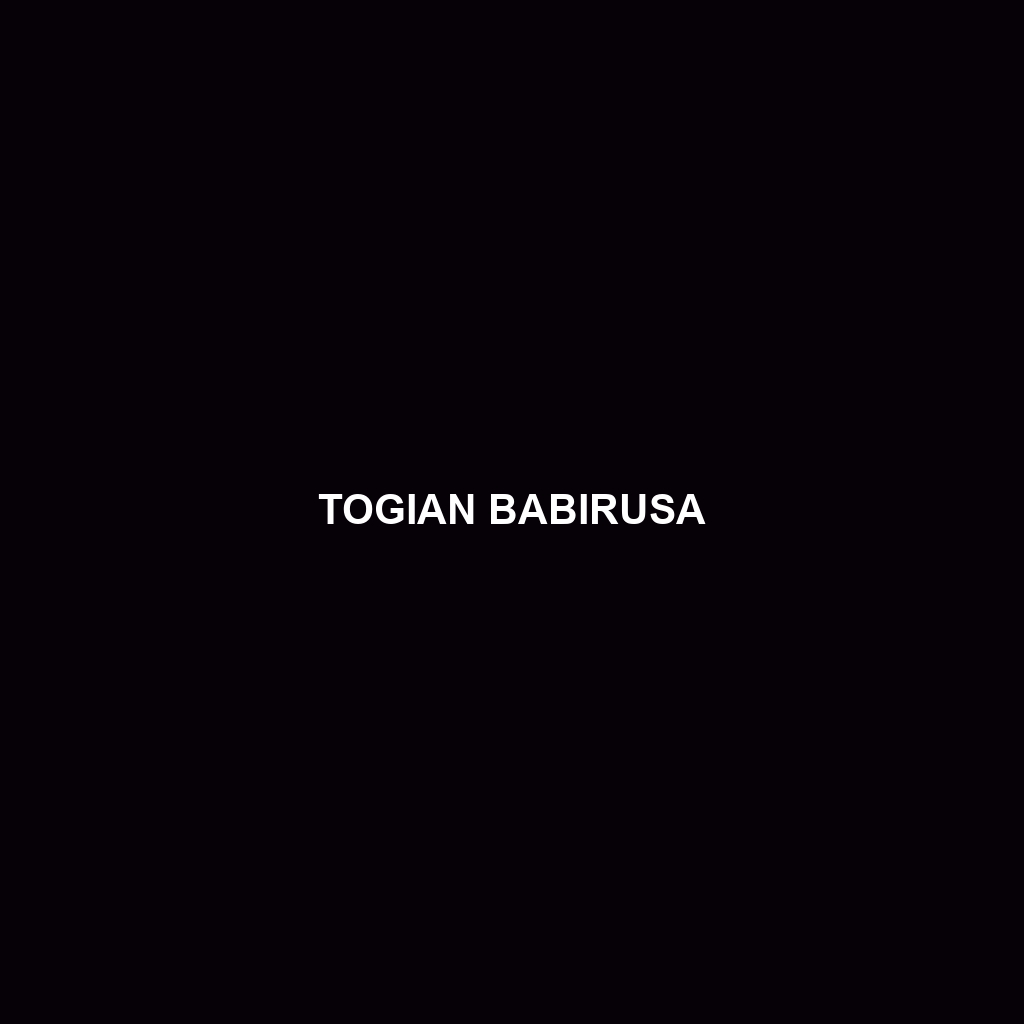Sulawesi Babirusa: An Overview
Common Name: Sulawesi Babirusa
Scientific Name: Babyrousa babyrussa
Habitat
The Sulawesi Babirusa, native to Indonesia, is primarily found in the forests of Sulawesi and surrounding islands. These unique animals inhabit lowland tropical forests, swampy areas, and occasionally grasslands. Their preference for dense vegetation provides them with cover and access to food sources.
Physical Characteristics
The Sulawesi Babirusa is a remarkable species, typically weighing between 80 to 100 kg (180 to 220 lbs) and measuring around 75 to 100 cm (30 to 40 inches) in length. They have a striking coat of coarse, brownish-gray hair. A distinguishing feature of males is their elongated tusks, which can grow upward through the skin of their snouts, creating an impressive appearance. The tusks are a defining characteristic that sets them apart from other wild pigs.
Behavior
Known for their social behavior, Sulawesi Babirusas often live in small groups or are seen foraging alone. They exhibit a range of vocalizations for communication, especially when it comes to establishing territory or attracting mates. Primarily crepuscular, these animals are most active during the twilight hours, during which they engage in foraging and social interactions.
Diet
The diet of the Sulawesi Babirusa consists mainly of fruits, roots, and tubers. They are omnivorous and will also consume small invertebrates and other organic matter found in their habitat. Their foraging behavior is critical for seed dispersal, making them an essential part of their ecosystem.
Reproduction
Breeding usually occurs year-round, with peak seasons varying based on local environmental conditions. Female Sulawesi Babirusas typically give birth to one or two piglets after a gestation period of approximately 150 days. Maternal care is strong, with mothers nursing their young and teaching them essential survival skills in their natural habitats.
Conservation Status
The Sulawesi Babirusa is currently classified as vulnerable by the International Union for Conservation of Nature (IUCN). Habitat loss due to deforestation, hunting, and agriculture poses significant threats to their populations. Conservation efforts are crucial to protect this unique species and its dwindling habitat.
Interesting Facts
One fascinating aspect of the Sulawesi Babirusa is the unique growth pattern of their tusks, which can penetrate the skin of their snouts if they grow too long. Additionally, they are often referred to as “deer pigs” due to their distinct appearance, combining features of both pigs and deer. Their reproductive output is low, which contributes to their vulnerability in the wild.
Role in Ecosystem
The Sulawesi Babirusa plays a vital role in its ecosystem as a seed disperser. By consuming fruits and foraging through the underbrush, they help promote the growth of various plant species. Furthermore, they serve as prey for larger predators, contributing to the ecological balance in their habitat.
